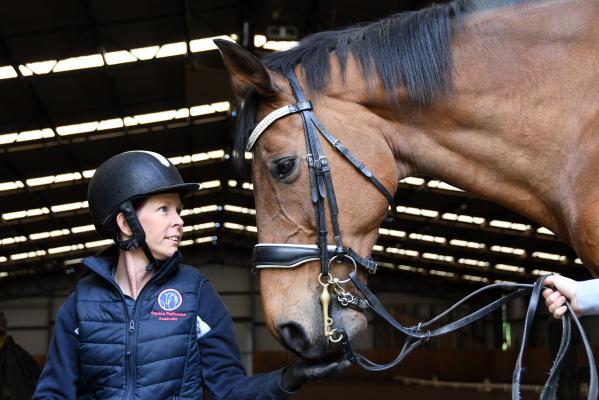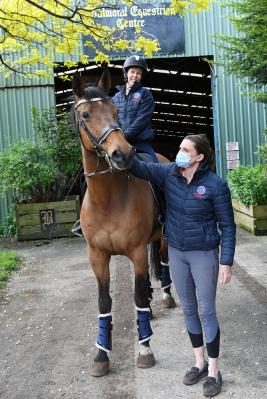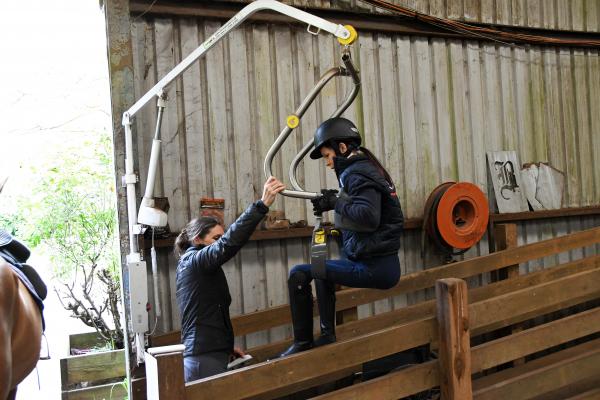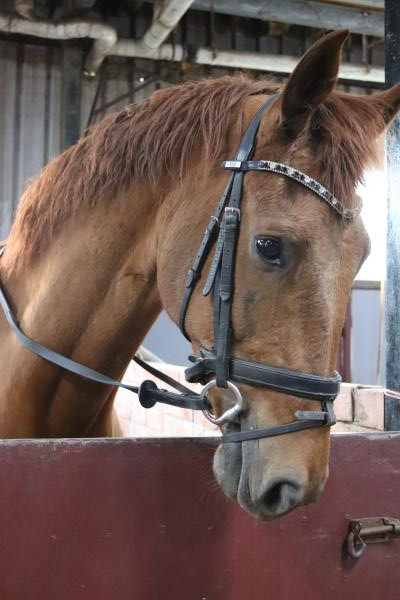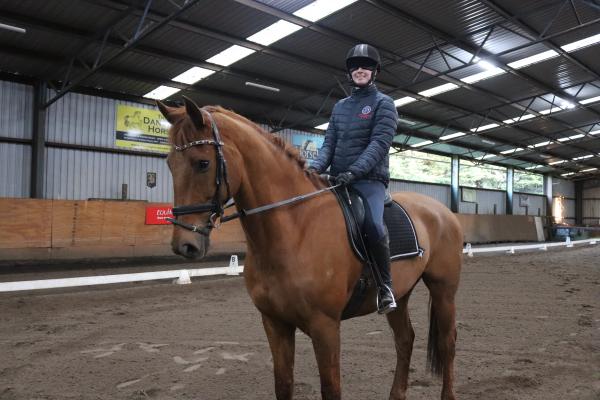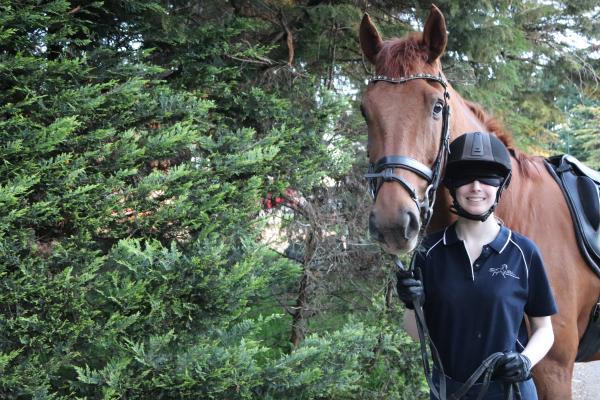Nestled in the hills of Narre Warren North, an equestrian charity is empowering people with disabilities and helping them find their tribe, as DANIELLE KUTCHEL reports.
“It’s quite dramatic to say this but I can openly say I wouldn’t be alive without EPA.”
Equine Pathways Australia (EPA) was founded in 2017 by Julia Battams, an equestrian coach who had previously worked with Equestrian Australia.
She had worked with athletes with disabilities, training them for the Paralympic Games and world championship competitions.
EPA is an extension of that work – but it’s not just about the horses.
It’s about creating a supportive, safe community where people can learn new skills and meet others like them.
EPA offers three streams to its athletes: vocational, for those who are aiming to get back into the horse or racing industry after an accident; recreational, in which athletes can engage with riding in whatever way they prefer; and the high performance sector, which focuses on training athletes to compete at an international level.
Athletes are supported by qualified allied health professionals who help them set and achieve goals in their riding and training.
Adaptive equipment is used to provide a safe and supportive environment for athletes so they can all achieve their best on the horse.
Those training for international competitions are put through their paces using accessible and adapted training techniques designed to work with each athlete’s abilities.
Ms Battams says it’s taken a bit of practise – but watching the athletes on their training exercises, the process is seamless.
Another key part of the training and general riding is the horse beneath the rider.
EPA works hard to source appropriate horses, animals that have the right temperament to bond and work with the rider. Many are ex-racers, and there are even some famous names joining the organisation – including the legendary Jungle Edge, now on a new career path after retiring from racing.
The charity has grown rapidly in just a few short years and is currently expanding interstate.
While Covid has forced the cancellation of some interstate clinics and even weekend training, the athletes have kept in touch via fortnightly Zoom calls.
The strong social bonds have quite literally saved people’s lives, participant Mel Diplock explained.
She came to EPA after an accident in 2009 and major spinal surgery in 2010 left her with a disability.
She said she had been surrounded by helpful, willing people in the aftermath, but had never felt like they could quite grasp what she had been through.
“It’s quite dramatic to say this but I can openly say I wouldn’t be alive without EPA,” she said.
“It was that bad, the depression. I can pretty much guarantee there wouldn’t be one participant who hadn’t said at one point, ‘I wouldn’t be here without EPA’ -it means that much to people with disabilities.”
While the horses are the common interest, it’s the social interaction that creates the bond between participants.
All participants take lunch together, giving them a chance to socialise and make friends.
As Ms Diplock explains, they come together to “be around people who know and understand what they’re going through”.
Some have never even ridden a horse prior to joining EPA – but here, they find what they’re looking for.
“It’s a community. They’re our people,” Ms Diplock said.
“It’s all the talking and in-between that’s the important stuff; that’s where the support happens.
“It’s a one-of-a-kind program that we cannot be without, literally.”
Lucy Coates, another athlete with EPA, got involved at the very beginning of the EPA program after becoming blind in a car accident.
“Julia was my coach at the time and took me on straight after my car accident,” she said.
“She put me straight onto a horse, and the fact that I’m thriving and living such a good life – they’ve definitely contributed heaps to that.”
Ms Coates rides Janz and is currently training for the Paralympics.
With EPA she made it to her first competition, the Paranationals, where she came third in her class.
The EPA family was there to calm her down and cheer her on through it all.
“I want to go to the Paralympics and EPA has made that a real goal, not just a dream,” she said.
EPA has supported Ms Coates through struggles, surgeries and different horses, and she is proud to say they’re like her family now.
“It’s a group of people who empower each other. With EPA, you are never alone,” she said.
She paid tribute to Ms Battams’ ingenuity; the coach has helped create a new speaker system to be used in para-dressage.
“That will hopefully help more vision impaired people in riding,” Ms Coates explained.
Ms Battams said she enjoys being able to coach athletes with disabilities.
“From a coaching perspective, it’s more challenging and because it’s more challenging, when you get it right, you get so much benefit from it as a coach,” she said.
“It’s not the same style of coaching all the time; you have to change and be flexible and innovative. I love it.”
She also works with local trainers and clubs to help them prepare their environment for riders with disabilities, smoothing the path for them and helping them see what sort of adaptations they can make.
As Covid restrictions wind down and riders return to EPA to train, Ms Battams has her sights set on the 2024 Paris Paralympic Games.
She’s hoping that Australia’s Paralympic equestrian athletes will have come through the EPA program.
Equally, she’s continuing her focus on the vocational side of the program to get people back out into the community.
No matter the riding style or event, she said the thrill of seeing an athlete achieve where they previously thought they can’t, never gets old.
“Those highlights – there’s not just one of them, there are multiple. Every time I meet new clients there’s something there, and that’s what I love,” Ms Battams said.
EPA is always looking for horses that may be suitable for their programs and clinics, as well as for businesses that can sponsor the horses.
For more information or to make a suggestion, visit https://equinepathways.org.au/

